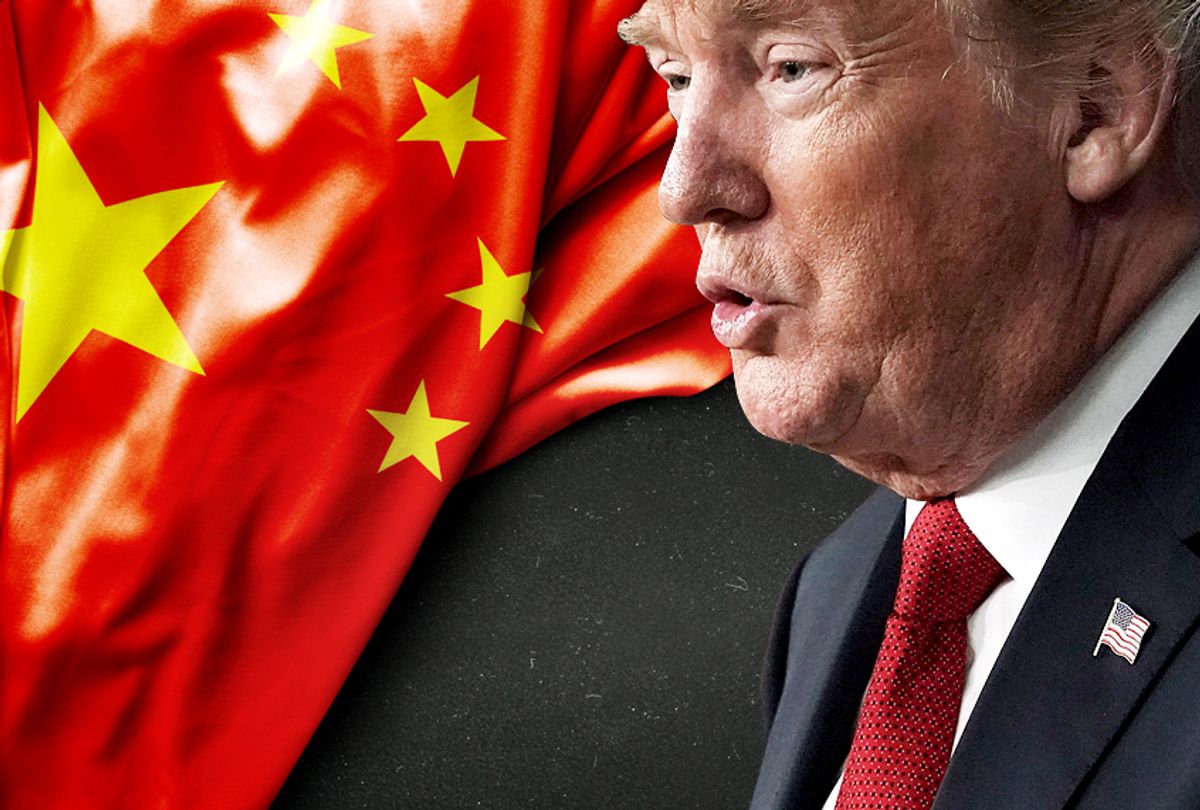We know that the coronavirus pandemic originated in China. Indeed, President Trump has begun calling it the "Chinese virus," a rhetorical device that smacks of racism or xenophobia. This does not mean, however, that the U.S. will necessarily emerge from this crisis as the stronger superpower. Indeed, early signs point to China potentially winning the propaganda war as the Trump administration makes a number of missteps.
China has sent doctors, masks and ventilators to afflicted areas of Europe over the past few days as part of a larger effort to depict itself as being at the forefront of the humanitarian response to the outbreak. World Health Organization director general Tedros Adhanom Ghebreyesus praised China's aid to Italy as a "heartwarming example of solidarity," while Italy's ambassador to the European Union contrasted China's efficiency with the EU's incompetence. China now appears to have outlasted the worst of the coronavirus epidemic, with the number of new cases dropping sharply and life beginning to return to normal.
China has also used propaganda to whitewash its role in contributing to the pandemic. Its Ministry of Foreign Affairs endorsed a conspiracy theory last week suggesting that the virus was brought to China by U.S. soldiers who visited Wuhan in October. (This is not true.) The Chinese government also claims to have worked toward effectively containing the virus as soon as it learned of its existence, even though there are reports that Beijing knew about the disease back in December and did nothing to warn citizens or prevent it from spreading. The Chinese state also cracked down on whistleblowers and censored social media to stop information which casts it in an unflattering light.
China's authoritarian system "can afford it some specific advantages in certain circumstances, but the Chinese Communist Party's efforts to censor medical professionals and impede scientific advancement will overshadow its current outreach to virus-affected countries," Zachary Hosford, deputy director of the Asia Program at the German Marshall Fund, a nonpartisan think tank, told Salon by email.
"And this isn't happening in a vacuum. The world is waking up to a broad range of troubling Chinese government policies, including support for a heavy-handed crackdown in Hong Kong, attempts to erase Uighur freedoms and culture, bans on foreign journalists and exports of advanced surveillance technology and practices to repress populations."
He added, "But we can't just criticize China – Americans need to buckle down to claw back the significant ground we have lost economically, militarily, and in the fight for human rights and democracy."
Chinese relief efforts have also cast the U.S. in a negative light. China's ambassador to South Africa, Lin Songtian, tweeted on Monday that "We are doing instead of talking. We are the friends not enemy. Could the American do the same to Chinese?"
German President Frank-Walter Steinmeier seemed to take a swipe at Trump's "Chinese virus" remark on Monday, saying during a national address on Monday that "viruses don't have a nationality and neither will the antidote." The WHO has requested that public officials not use terms which link the virus to a specific nationality.
"The comments made by President Trump intensify the xenophobia and racism that's become rampant against Asians and Asian Americans globally," Rosalind Chou, a sociology professor at Georgia State University, told Salon on Tuesday. "He's fueling fears against Chinese, specifically. However, people of Asian ancestry across the globe may face collateral damage. These statements are dangerous and erroneously assign blame to people who are as susceptible to the disease as anyone else worldwide."
Trump also attracted criticism for reportedly offering $1 billion to a German pharmaceutical company to purchase exclusive rights to a vaccine that would only be made available in the U.S. Trump officials have denied the story, but German government officials have confirmed it. The president has also repeatedly lied about important details regarding the COVID-19 outbreak. He initially claimed that a vaccine was being developed "rapidly," insisted that diagnoses in the U.S. were "going very substantially down — not up" and contested the WHO's claim that the disease has a 3.4% mortality rate. He has also said that tests are available to anyone who wanted them, which remains nowhere close to true.
"Consider Trump's usual practice of naming and shaming, in this case the Chinese, to distract from his own failures and irresponsible reaction to the crisis," Mark Lytle, a history professor emeritus at Bard College, told Salon by email. "So long as he is president, the only realignment will likely be the continuing alienation of the U.S. from friend and foe alike. Who would make a deal with a person who lies even about the time of day?"



Shares